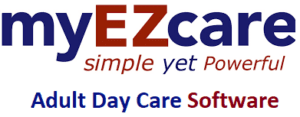In the rapidly evolving landscape of digital health, security and privacy have become paramount concerns. As healthcare providers and patients increasingly rely on digital platforms to share and store sensitive information, ensuring the integrity and confidentiality of this data is crucial. Enter blockchain technology – a revolutionary solution poised to transform healthcare by providing unparalleled security and privacy.
What is Blockchain?
Blockchain is a decentralized digital ledger that records transactions across multiple computers so that the record cannot be altered retroactively. This technology underpins cryptocurrencies like Bitcoin but its potential extends far beyond financial transactions.
Why Blockchain in Healthcare?
- Enhanced Data Security: Blockchain’s decentralized nature makes it inherently secure. Each transaction or piece of data added to the blockchain is encrypted and linked to the previous one, forming a chain that is nearly impossible to alter without consensus from the network.
- Improved Privacy: With blockchain, patient data can be anonymized and stored in a way that only authorized individuals can access it. This ensures that sensitive health information remains confidential.
- Interoperability: Blockchain enables seamless data sharing across different healthcare systems while maintaining data integrity. This can lead to improved patient care and streamlined operations.
- Transparency and Accountability: Every action performed on a blockchain is recorded and traceable. This transparency can help prevent fraud and ensure accountability in healthcare operations.
Real-World Applications:
- Electronic Health Records (EHRs): Blockchain can create a unified, secure, and accessible EHR system, giving patients control over their health data and ensuring that records are accurate and up-to-date.
- Supply Chain Management: Blockchain can track the journey of pharmaceuticals from manufacturers to patients, ensuring the authenticity and safety of medications.
- Clinical Trials: Blockchain can secure the data collected during clinical trials, ensuring its integrity and making the process more transparent and efficient.
Conclusion:
Blockchain technology holds the promise of transforming healthcare by ensuring security and privacy, improving interoperability, and enhancing transparency. As we continue to navigate the digital health landscape, embracing blockchain could be the key to a more secure and efficient future in healthcare.


